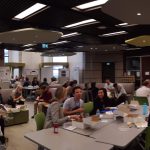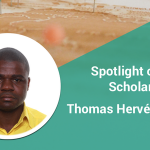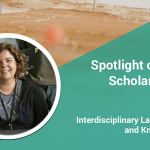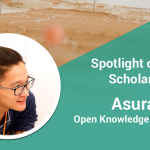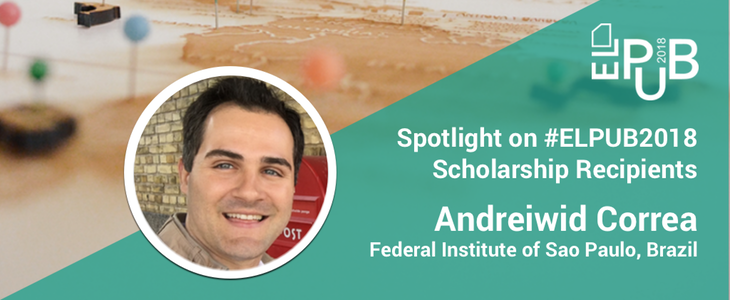
Over the next few weeks in the lead up to the ELPUB Conference, we will be featuring the #ELPUB2018 Travel Scholarship recipients on our blog. We would like to thank our Conference Partners – PLOS, OpenEdition, SPARC, FACETS Journal, UTSC’s Arts Culture and Media Departmentand Centre for Critical Development Studies, U of T Libraries, ACRL, Arcadia Fund, CARL, Creative Commons, Canadian Research Knowledge Network (CRKN), eLife, KULA Journal and Ubiquity Press – for making it possible to include more voices in the conversation.
In this post, we share a Question and Answer interview with Andreiwid Sheffer Correa from the Federal Institute of Sao Paulo, Brazil. Andreiwid will be presenting his poster, “A collaborative approach to support document structuring process in the context of open government data” at the ELPUB Conference.
What are your research interests and how do they fit in with the theme of the ELPUB conference (Connecting the Knowledge Commons: From Projects to Sustainable Infrastructure)?
I am an early career professor in a higher education institution called Federal Institute of Sao Paulo (IFSP) located in Campinas, State of Sao Paulo, Brazil. I teach Informatics/Computing to undergrad students and my interest in open practices (including Open Access) arose 6 years ago when I started my Ph.D research on Open Government Data. Since then, the interaction with open community brought a lot of opportunities to advance openness within my academic and research duties. One of them includes to understand how open data relates to online publishing of information through documents in PDF, HTML, and other non-open or non-structured file formats.
My research interests fit into this year’s ELPUB conference theme because it takes into consideration what I call a collaborative approach to support an infrastructure of open data, which is sourced from an incipient project and now is expected to expand and be available to the community interested in open practices, especially Open Government Data.
This collaborative approach, which is built on the top of each contribution, turns the infrastructure of open data sustainable as data enthusiasts feel more encouraged to collaborate with their piece of data and then make “the data” a truly commons in a society where there is civic engagement to promote a better environment to live.
What are some of the specific challenges within your region/country with regards to infrastructures for open access?
In my country, Open Access as well as Open Data have an enormous room to grow and involve the wide community of interested parties in research. Particularly within the academic environment, I feel that the current generation of students needs to know what Open Access is and how research outputs can be freely available to anyone without any restriction.
In our context, beyond an infrastructure for Open Access, we should first go through a careful process of teaching students the basics about Open Access. It means teach them the importance of Open Access and how to understand the variety of existing licenses we can rely on to make our research and work fully available.
What do you hope are the outcomes of the ELPUB Conference?
I believe ELPUB 2018 will rise to the current Open Access challenges by providing a forum for discussion to advance openness, especially in research. I really want to see participants and activities not only directed towards Open Access, but also towards the issues and elements that orbit at this subject and make research outputs a knowledge commons. I think Open Data is one essential part of them.
I am excited to take part of the conference to share my thoughts and interact with people who have the same interests. Through ELPUB Travel Scholarship, I will be able to take part in it and network with researchers all around the world. Thank you very much for this great opportunity!
